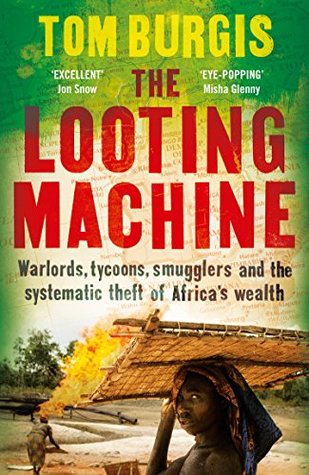More on this book
Kindle Notes & Highlights
by
Tom Burgis
There are plenty of theories as to the causes of the continent’s penury and strife, many of which treat the 900 million people and forty-eight countries of black Africa, the region south of the Sahara desert, as a homogenous lump.3 Colonizers had ruined Africa, some of the theorists contended, its suffering compounded by the diktats of the World Bank and the International Monetary Fund; others considered Africans incapable of governing
accompany the discovery and extraction of oil and other natural resources, such endowments all too often impede rather than further balanced and sustainable development.’4 Analysts at the consultancy McKinsey have calculated that 69 per cent of people in extreme poverty live in countries where oil, gas and minerals play a dominant role in the economy and that average incomes in those countries are overwhelmingly below the global average.5 The sheer number of people living in what are some of the planet’s richest states, as measured by natural resources,
Unbeholden to the people, a resource-fuelled regime tends to spend the national income on things that benefit its own interests: education spending falls as military budgets swell.6 The resource industry is hardwired for corruption. Kleptocracy, or government by theft, thrives. Once in power, there is little
Africa accounts for 13 per cent of the world’s population and just 2 per cent of its cumulative gross domestic product, but it is the repository of 15 per cent of the planet’s crude oil reserves, 40 per cent of its gold and 80 per cent of its platinum – and that is probably an underestimate, given that the continent has been less thoroughly prospected than others.8 The richest diamond mines are in Africa, as are significant deposits of uranium, copper, iron ore, bauxite (the ore used to make aluminium), and practically every other fruit of volcanic geology. By one calculation Africa holds
...more
Finn or South Korean can expect to live to eighty, nurtured by economies among whose most valuable companies are, respectively, Nokia and Samsung, the world’s top two mobile phone manufacturers. By contrast, if you happen to be born in the Democratic Republic of Congo, home to some of the planet’s richest deposits of the minerals that are crucial to the manufacture of mobile phone batteries, you’ll be lucky to make it past fifty. Physical cargoes
them. That looting machine has been modernized. Where once treaties signed at gunpoint dispossessed Africa’s inhabitants of their land, gold and diamonds, today phalanxes of lawyers representing oil and mineral companies with annual revenues in the hundreds of billions of dollars impose miserly terms on African governments and employ tax dodges to bleed profit from destitute nations. In the place of the old empires are hidden
Delivering a suitcase stuffed with cash is only the simplest way to enrich local officials via oil and mining ventures run by foreign companies. A more sophisticated technique involves local companies, often with scant background in the resource industries. These companies are awarded a stake at the beginning of an oil and or mining project alongside the foreign corporations that will do the digging and the drilling. Sometimes genuine local businessmen own such companies. Sometimes, though, they are merely front companies whose owners are the very officials who influence or control the
...more
Katumba had gone from a junior post in a Johannesburg bank to the side of Congo’s new president. He was appointed minister of the presidency and state portfolio, in charge of state-owned companies. In 2002 UN investigators appointed to study the illegal exploitation of Congo’s resources named him as one of the key figures in an ‘elite network’ of Congolese and Zimbabwean officials, foreign businessmen and organized criminals who were orchestrating the plunder of Congolese minerals under cover of war.20 ‘This network has transferred ownership of at least $5 billion of assets from the state
...more


